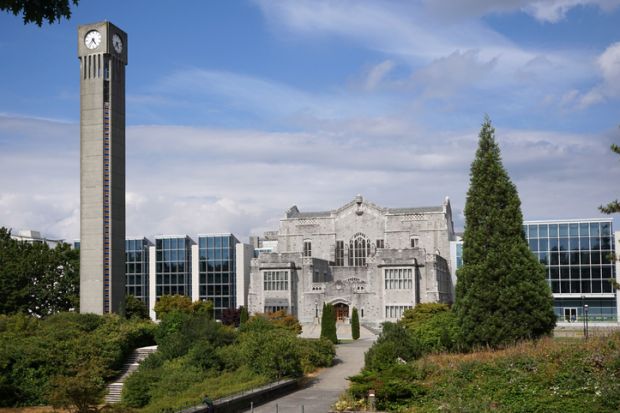Former provincial judge Mary Ellen Turpel-Lafond has left her faculty position at the University of British Columbia, after several months of escalating controversy over the law professor’s right to claim indigenous ancestry.
The university gave no reason for Professor Turpel-Lafond’s departure, although it has acknowledged community concern about the matter and promised further examination of it.
Professor Turpel-Lafond, according to The Free Press of British Columbia, provided a brief comment in which she described a desire “to retire based on her ‘age and stage of life’”.
In a nation that has put a heavy emphasis on finding ways to repair its longstanding mistreatment of its native peoples, Professor Turpel-Lafond built a prominent career in law and academia as an indigenous expert, while claiming to have Cree, Scottish and English heritage, and to hold active membership of the Muskeg Lake Cree Nation, with the name of Aki-Kwe.
She practised law at the Asimakaniseekan Askiy Reserve in Saskatoon and was understood to be the first aboriginal person to become a tenured professor of law in Canada, and the first recognised Treaty Indian to be appointed as a provincial court judge in Saskatchewan.
But an investigation published in October by CBC, based on an extensive review of family records and other documents, concluded that the available evidence did not support her career-long assertions about her Cree ancestry, treaty Indian status, and childhood community.
“Her claims don’t appear to match the historical record,” CBC said.
Professor Turpel-Lafond, the director of UBC’s Indian Residential School History and Dialogue Centre from 2018 until June last year, rejected the report, but offered no evidence to counter CBC’s findings.
At the time, UBC appeared to support Professor Turpel-Lafond, complimenting her work on behalf of Canada’s indigenous peoples, and saying her hiring was unrelated to her claims of indigenous ancestry.
Groups representing indigenous communities were divided. Those backing her included the Union of British Columbia Indian Chiefs, which had worked with Professor Turpel-Lafond on a report on indigenous-specific racism and discrimination in healthcare in British Columbia. Critics included an activist group known as the Indigenous Women’s Collective, which called on 11 Canadian universities to revoke honorary doctorates they awarded to Professor Turpel-Lafond.
The case is one of several instances of alleged indigenous appropriation in higher education in Canada and beyond in recent years. Others include Carrie Bourassa, who resigned last year as a professor of health at the University of Saskatchewan after her claims of indigenous ancestry were challenged; and Elizabeth Hoover, who has remained associate professor of environmental science, policy and management at the University of California, Berkeley after abandoning her longstanding claims to be of Mohawk/Mi’kmaq descent.




